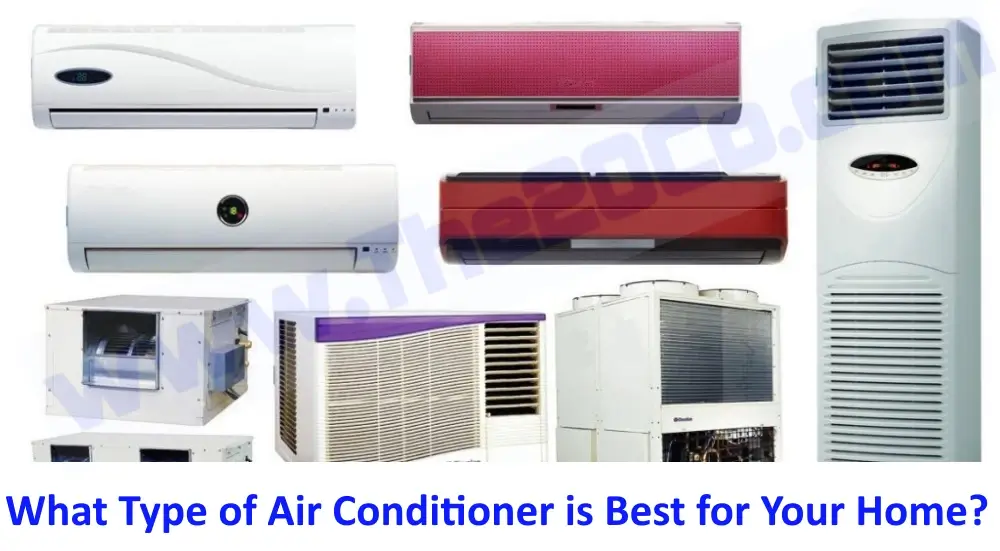If you’re wondering what type of air conditioning unit to buy, there are many factors to consider. We’ll take an in-depth look at the more popular types for this article. We’ll discuss what options you have available, and how each option might work best in your home. After reading this piece, you should have a pretty clear idea as to what type is best for your home. Let’s get started…
The Necessity of a Working Cooling System
The necessity of a working cooling system cannot be undermined. A malfunctioning AC can be a nightmare, especially during summer months when the heat is unbearable.
If you live in an area that experiences extreme temperatures during the summer months, then you should consider investing in a proper cooling system for your home.
The most common types of residential cooling systems include window units, central air conditioning systems, ductless mini-split systems and whole-house air conditioners. Each of these has its own benefits and drawbacks and it’s important for homeowners to understand their pros and cons before deciding on which system is best for them.
Why You Need to Know What to Buy?
If you’re looking to cool your home, you may have thought about buying an air conditioner. But the sheer number of models available can be overwhelming.
Air conditioners come in two basic types: window-mounted units and central air systems. Window-mounted units are relatively inexpensive and easy to install, but they don’t provide enough power for larger spaces. Central air systems can be expensive to install, but they cool large areas quickly and efficiently.
Before buying an air conditioner, it’s important to know what type will work best for your home and how much you can afford.
Evaporative Cooling Systems
Evaporative cooling systems are the most common type of residential air conditioner in use today. These systems use water evaporation to create cold air temperatures inside your home. Because they don’t use any refrigerant gas, these systems don’t require any special installation or maintenance beyond changing out the filters every few months. The biggest downside to evaporative cooling systems is that they require more energy than other types of units because they rely on a pump to circulate water throughout the system as well as fans to move air through the house so that it can be cooled by evaporation.
Window Air Conditioner
If you live in an apartment or small home that doesn’t have central air conditioning, a window unit may be the best option for cooling your space. They’re easy to install and don’t require any ductwork, so they’re relatively inexpensive compared with other types of air conditioners. A window unit can cool one room or multiple rooms, depending on its size and capacity. You can also use them in rooms with high ceilings by installing them on top of an open window or sliding glass door instead of inside the window frame.
Central Air Conditioners
Central air conditioning systems are installed in the attic or basement and cool the entire house. They have ductwork that distributes cool air throughout the home. Central air conditioning is more expensive than other options, but it’s also more energy efficient. Your HVAC system may also be less expensive if you don’t have ductwork in certain parts of your home, such as an unfinished basement or an attic with no ceiling joists.
Large Air Conditioner Versus Smaller One
The main difference between large and small air conditioners is the amount of square footage they can cool. Larger air conditioners can cover more area, which means fewer vents and ducts are needed for installation. Smaller units are more energy efficient because they don’t need as much power to run the compressor and fan.
It’s important not to buy too large of an AC unit for your home because it won’t have enough cooling capacity left over after running other appliances like lights or televisions. If you have high-efficiency windows and doors, then you may be able to get away with using a smaller unit than if you didn’t have those upgrades installed yet.
Ducts or No Ducts?
Air conditioning systems come with either ductwork or no ductwork. If your home already has ductwork, it’s probably best to install an air conditioner with ductwork. This is because the existing ducts can be used to distribute cool air throughout the house. However, if there are no existing ducts in your home, then installing a unit without them will be easier and faster.
If you have central air conditioning, then it might be time for a replacement unit. It’s possible that your current model has reached its lifespan and is not working properly anymore. In this case, it’s time to upgrade to a newer model that will work with your home’s current setup and needs.

